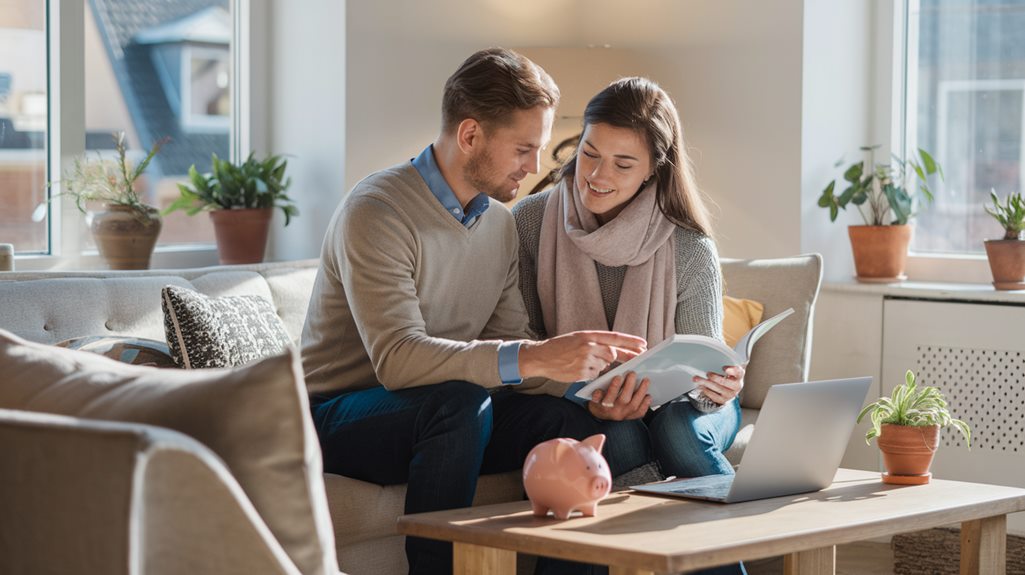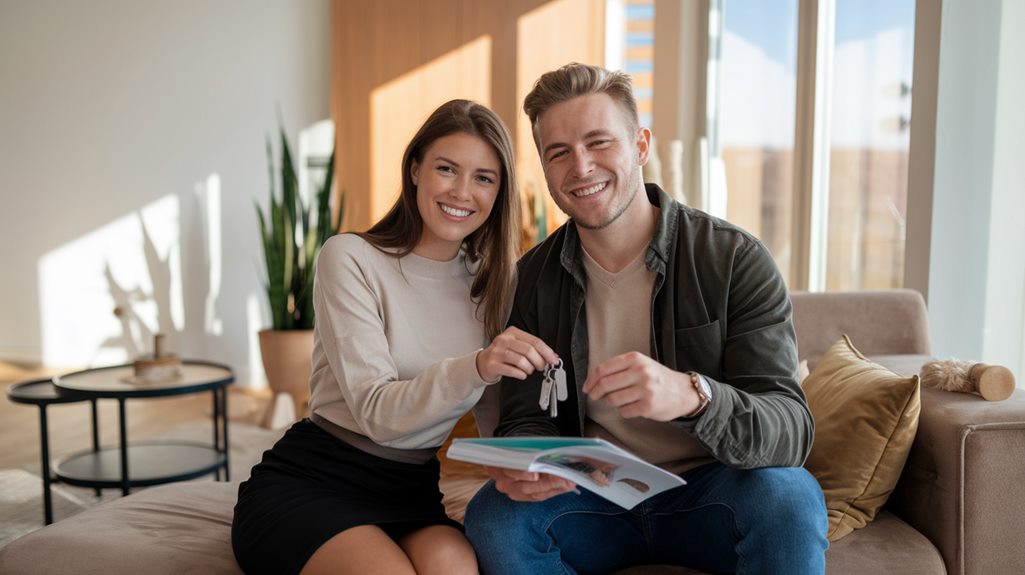When you want to buy your first house, start by looking at your money situation. This means knowing how much you can spend, what bills you have, and any money you owe.
Then, check out different types of loans to see which one is best for you. There are fixed-rate loans and some from the government that can help.
It's also important to save money for a down payment. You can set up a special savings account and cut back on things you don't really need.
To get a good loan, you should try to make your credit score better. You can do this by paying your bills on time and not using too much of your credit.
Lastly, think about other costs that come with buying a home, like paying for inspections, closing fees, and fixing things around the house.
Learn about all these parts to make your journey to owning a home easier and happier.
Ready to start building equity in your own Michigan home? Get your personalized home loan quote today.
Assess Your Financial Health

Before you start looking for a new home, it's important to check your money situation. First, take a good look at your budget. This means seeing how much money you make, how much you spend, and how much you save. Figure out what you can really afford for a house. Make a list of all the costs that come with owning a home, and remember to set aside some money for surprise expenses.
Next, think about any money you owe. Look at your debts and make a plan to pay them off. Try to pay off loans that charge the most interest first. If you can, combine some loans to make it easier to manage.
When you have control over your debts, you won't spend more money than you have. By being smart with your money, you can feel good about being a responsible buyer and ready to be part of a home-owning community.
Michigan residents, unlock the door to your new home. Request your home loan quote from Treeside Financial today.
Understand Mortgage Options
Now that you have looked at your money situation, it's time to think about the types of mortgages you can get.
First, you might want to look at fixed-rate mortgages. These let you pay the same amount of money each month for the whole loan time. This can help you plan your budget.
If you don't mind if your payments go up or down, adjustable-rate mortgages could be for you. They usually start with lower payments but can change based on the market.
There are also special loans from the government, like FHA and VA loans. These can be good because you might need to pay less money upfront or have lower costs for insurance.
Don't forget about private lenders. They might offer good deals too.
Make sure to check the loan details and any extra fees, because these can change how much money you spend over time.
When you know all this, you can make a smart choice that fits your money goals and helps you feel at home.
Save for a Down Payment

When you're getting ready to buy your first house, saving money for a down payment is really important. It takes some planning and self-control.
Start by figuring out how much money you need for the down payment. This usually is between 5% and 20% of the house price.
Next, think about ways to save that money. You can open a special savings account just for your down payment or set up automatic transfers from your paycheck to help you save.
Try to cut back on things you don't really need, and use that extra money for your goal.
You can also look for help from your job or programs in your state that help first-time homebuyers.
If you stay focused and keep your goal in mind, you'll feel more excited and ready to own your own home!
Improve Your Credit Score
If you want the best mortgage rates and terms, you need to start improving your credit score right away. First, check your credit report to make sure everything is correct.
Try to keep your credit usage low, below 30%. This means you should only use a small part of your credit. It shows you're good at managing money.
Don't forget how important your payment history is. Missing payments can hurt your score a lot. To help you remember, set reminders or automate your payments so you pay bills on time.
If you have debts, make a plan to reduce them step by step.
A strong credit score helps you find better homes and shows you're smart with money. You can do this! Take charge of your credit journey. You're not alone!
Plan for Additional Costs

Buying a house is exciting, but it costs more than just the price you see. There are extra costs that can surprise first-time buyers. To be ready, you should save money for a home inspection. This helps you find problems in the house before you buy it.
Don't forget about closing costs, which are fees that usually add up to 2% to 5% of the house price. These costs can include paying lawyers, getting the house appraised, and buying title insurance. All of these are important to help you own your new home.
It's also smart to set aside some extra money for things you mightn't expect, like moving costs or quick repairs.







